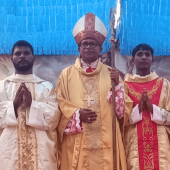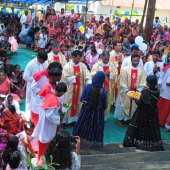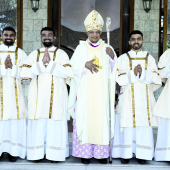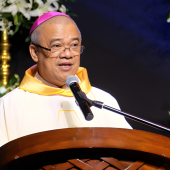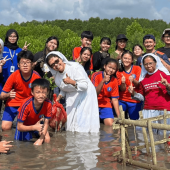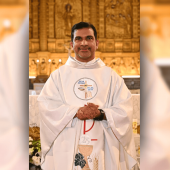Mangalore Diocese Condemns Anti-Christian Remarks Amid Dharmasthala Controversy
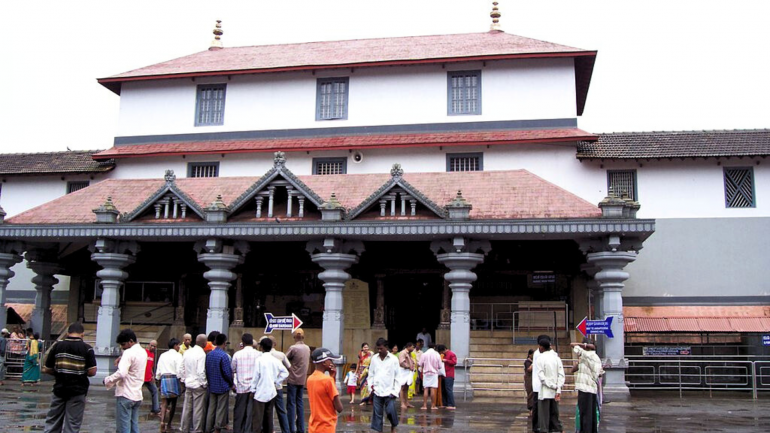
The Catholic Diocese of Mangalore has strongly condemned attempts to drag Christians into the controversy surrounding the shocking revelations of mass burials allegedly linked to the famed Dharmasthala temple in Karnataka, AsiaNews reported.
The affair began when a 48-year-old man, who had worked at the temple for nearly two decades, came forward with disturbing claims that he had been forced to dispose of hundreds of bodies, including those of women and children. His testimony prompted the Karnataka government to set up a Special Investigation Team (SIT) and sparked widespread concern among families of missing persons.
However, what started as a criminal and humanitarian issue has recently taken on troubling political and communal overtones.
A former union minister, B. Janardhana Poojary of the Congress Party, confused matters further by linking the discovery of human remains to Christian burial practices. Soon after, senior BJP leader R. Ashoka escalated tensions by falsely claiming that the Dalit whistleblower was a Christian convert and suggesting that foreign funds were tied to the case.
The Diocese of Mangalore denounced these remarks as baseless and inflammatory.
“These statements appear to be based solely on rumours. A person in a responsible position, like the Leader of Opposition, should not make childish comments without evidence,” the diocese said in an official statement.
The Church also expressed particular disappointment with Poojary’s careless comparison between Christian cemeteries and the alleged burials near the temple.
“In Christian burial grounds, no anonymous or unclaimed bodies are buried. Every burial is properly documented, and only members of the respective church are interred,” the statement clarified.
“Dragging Christian cemeteries into the Dharmasthala issue has deeply hurt our sentiments. Such comparisons are unfounded and misleading,” it added.
For the local Christian community, the remarks reflect a disturbing trend of communalizing sensitive issues for political gain. By shifting blame and creating suspicion around Christians, Church leaders warn, politicians risk fanning divisions at a time when the focus should remain on truth, justice, and the dignity of victims, according to AsiaNews.
Radio Veritas Asia (RVA), a media platform of the Catholic Church, aims to share Christ. RVA started in 1969 as a continental Catholic radio station to serve Asian countries in their respective local language, thus earning the tag “the Voice of Asian Christianity.” Responding to the emerging context, RVA embraced media platforms to connect with the global Asian audience via its 21 language websites and various social media platforms.









